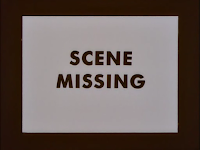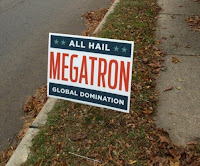Okay, yeah. That’s a friggin’ lazy title.
I’m pressed for time. Sorry.
Why am I pressed for time? Well. I’m trying to pack up my apartment (and my office), while at the same time finish a final polish on this book and write the ranty blog and prep for a Writers Coffeehouse this weekend and holy crap San Diego ComicCon is in two weeks.
Now that I think about it, it’s kind of amazing how well I’m keeping up with this…
Anyway, while you read this I’m finishing a draft of my current project and it struck me that I haven’t talked specifically about drafts in… well, a couple of years now. So it’s definitely a topic worth revisiting.
Some people hate doing drafts. Others get caught in this endless loop of writing and rewriting and rewriting and rewriting and…well, you probably know someone like that. And there are folks who skip “drafts” altogether, convinced their words are NYT bestselling gold the minute they’re set down.
What I wanted to do here is sort of a step-by-step guide of what I do to get something to the point that I’m willing to turn in to an editor. And by “editor,” I mean “someone who will give me money for these words I’ve written.” This is final step stuff. Here be dragons. If you think of editors as scaly, fire-breathing folks.
Of course, all that mother of dragons stuff being said, it’s important that we all remember the Golden Rule
I’ve mentioned once or twice or thrice before that we all have our own methods of writing. Doing drafts this way helps me a lot, but it’s not a guarantee of success for anyone except me. You might need to modify these steps a bit. Or a lot. But all things considered, I think this is a good base to start from.
So…
Here’s what I do.
While I’m working on a book, I’m usually scribbling down random thoughts about the nextbook. Characters, dialogue, action moments, reveals… all sorts of different elements. I’ll shuffle these around into more or less the order I think they’ll end up. Over the past two years or so, I’ve become a bigger fan of outlines than I used to be, but not enough that I’d say “This is the one and only true way! Bow before your meticulously outlined god!!!!” I shuffle things around, maybe plan a few extra beats, and get a sense where I want to start and where I’m going.
Once I’ve got all that and the current project is done, I dive into…
Draft One—So, for me, this is the “just finish it” draft. I just want to this draft to go from beginning to end with… well, most of the points in between. I don’t worry about typos or crafting nuances here. It’s just the “plow through and get it done” phase of writing.
At this early stage, I don’t hold anything back. I let dialogue, descriptions, and action scenes run on a bit longer than they probably should. I know I’ll be cutting eventually, so there’s no reason to worry about length now. For this stage, it really is quantity over quality.
Also, like I hinted above, if I get stuck on something at this point… I just skip it. Seriously. My first drafts look like old silent movies with the little “Scene Missing” card that pops up for twenty or thirty seconds. I know I’ll be able to go into the exact details of that conversation or this sequence later, so I’d rather keep moving forward and leave that stuff for Future Peter to deal with. Again, for me, the most important thing is to get the overall framework done. It’s a lot easier to think about the little things when the big things aren’t looming over you.
Depending on the book, this process takes me anywhere from two to three months. I had one book take about six weeks, but that was pretty rare for me. If I factor out the time I lost to some personal stuff, this last one was just over three.
A key thing to remember. I don’t show this draft to anyone. Not my girlfriend, not my agent–nobody. The first draft isn’t meant to be seen, it’s just meant to give me something to work with
I may work on something else for a day, maybe even take the whole weekend off, and then it’s right back for…
Draft Two—So, all those problems I left for Future Peter to deal with? I’m him now. Those need to be dealt with. Gaps get filled in. Characters get fleshed out a little more, and sometimes renamed. All those awkward knots get worked out. Now that I can see a lot of these elements in relation to the whole story, I’ll usually find the answers to these problems are more apparent.
The goal with this draft is to have a readable manuscript. No more little notes to myself or trailing paragraphs that need to get connected somehow. Someone should be able to pick this up and read it start to finish without thinking they lost a few pages or only got my notes on a chapter.
Again, keep in mind—this doesn’t mean I do show it to people. It just means I should be able to.
For some writers, this would really be their first draft. That’s one of those personal preference things—again, advice over rules. Personally, breaking it up like this takes a lot of pressure off me, and I think that’s a good thing when you’re trying to treat writing like a real job. No one likes a high-pressure job.
Okay then, so… now I step away for a couple of days. Maybe as much as a week. I’ll watch movies, work out a little more, maybe even scribble up a few of these ranty blog posts in advance. The goal is to push the manuscript as far out of my mind as possible. Don’t look at it, try not to think too much about it.
Draft Three—And now, the long night of a thousand cuts begins. Two great rules-of-thumb I’ve mentioned a few times—
one adverb per page, four adjectives
2nd draft = 1st draft – 10%
Yeah, the second rule (courtesy of Stephen King) goes off the previously mentioned assumption that my first clean, readable draft is my first draft.
I spend this draft tracking down adverbs, adjectives, pointless dialogue descriptors, and so on. One thing I also go after here is common padding phrases that don’t really do anything (sort of, somewhat, kind of, more or less). One of my regular beta readers dubbed this somewhat syndrome a while back, and I still call it that. I like to tell myself I’ve gotten better about it now that I’m aware of the problem.
Hey, we all have the little lies that get us through the day.
And this little stuff adds up fast. In my current manuscript I cut 200 instances of that. Almost a full page gone, just by checking on one word.
 Again, to be clear, though—these are rules of thumb. They’re guidelines. I want to stick close to them, but there’s going to be times I want a couple adverbs and a good double handful of adjectives. No editor will freak out if there are three adverbs on one page. But if there’s four or five on everypage… well…
Again, to be clear, though—these are rules of thumb. They’re guidelines. I want to stick close to them, but there’s going to be times I want a couple adverbs and a good double handful of adjectives. No editor will freak out if there are three adverbs on one page. But if there’s four or five on everypage… well… At this point I’ve gone through the whole manuscript at least twice, so a few larger cuts should be apparent, too. Overcomplicated descriptionsthat slow down the narrative. Awkward sentence structures. Extensive character moments that add nothing to the character, the story, or the plot. Many of these things get tightened or cut in this draft.
I spend a week or two doing this.
The Fourth Draft–This is the first big polish. I go through sentence by sentence, looking for words that come up too often or stilted dialogue. I also make sure all the cuts and swaps from the last draft haven’t messed anything up. Are the logic chains still complete? Did I forget to change Gilford’s name to Gillyman anywhere? Does Gordon have a pistol or a baseball bat in this scene? Are there any odd character tics that I forgot to remove or add? Does the whole thing have a good flow to it?
This draft doesn’t take long. Just a day or two. It’s just one slow, careful read of the story. And, yeah, sometimes I still miss stuff.
Once I’ve got this clean draft, I send it off to my beta readers to get fresh eyes. I generally use four or five friends I’ve know for years. They’re all professional writers and editors who know how to give useful criticism. Not to beat a dead horse, but by professional I mean… they have actual credentials. Some folks may decide to hire a professional editor at this point. Nothing wrong with that. The important thing is to get an unbiased opinion I can trust, even if I have to pay for it.
A few folks might argue that editing is the publisher’s job. Okay, sure, you could look at it that way. I need to get a publisher first, though, and why are they going to bother acquiring my crap manuscript that wasn’t even edited?
Anyway… this draft goes off into the world and it may be a week or three before I look at it again. For me, at this stage in my career, it usually depends on deadlines. But I don’t look at it during this time. I try to relax a bit, scribble down ideas for later books (see above), or flex different mental muscles.
For example, as I mentioned before, right now I’m packing up a lot of my office. Turns out I’ve got a ton of LEGO and Warhammer and Gundam models and comics all piled up in the closet here. Who knew?
Well, okay. I kind of suspected…
Well, okay. I kind of suspected…
The Fifth Draft—So, I’ve gotten notes back from those wonderful folks I begged/ blackmailed/ paid to read this thing. Now I go through the whole manuscript page by page with their comments. At one point I did this with multiple monitors.
 So, page one… what did everyone think? What about page two? How’s page three look? This way I can see all the notes at once and make whatever changes are required. I’ve also got my own copy of the fourth draft that I’m slowly rewriting into the fifth draft as we go.
So, page one… what did everyone think? What about page two? How’s page three look? This way I can see all the notes at once and make whatever changes are required. I’ve also got my own copy of the fourth draft that I’m slowly rewriting into the fifth draft as we go. I mentioned I ask four or five people to make notes for me. That gives me a broad sampling on each note/ issue that comes up. If four people like something but one doesn’t, odds are I’ll call that good. Nothing’s going to work for everyone. If three don’t and two do (and of course I do—that’s why I write it), I’ll sit and give it a good look. If nobody likes it, well… I’m smart enough to admit when I’ve screwed up and something doesn’t work.
This draft can take another two weeks or more to finish with a full book manuscript.
The Sixth Draft— This one’s another polishing draft, just like the fourth. I need to make sure everything still works now that I’ve made those changes and tweaks from my reader’s comments. So, yet another line by line reading, adjusting as I go. And at this point… this is when I’m done. There’s only so much a given writer—in this case, me—can do with a given story. There comes a point when further work accomplishes nothing and I’m just rewriting for the sake of rewriting. If my manuscript’s not ready for a publisher (or film producer) by now, it probably means I screwed up something big right at the start.
Next time… well, if there’s anything next week it’ll be really quick. As you may have figured out, I’m moving, and the big day is a week from today. And then the week after that is San Diego ComicCon! Oh, hell– and the Writers Coffeehouse is this weekend. If you’re in LA,stop by Dark Delicacies noon to three on Sunday.
But, yeah, next time… I’m sure I’ll have something
Anyway… go write.
Anyway… go write.













